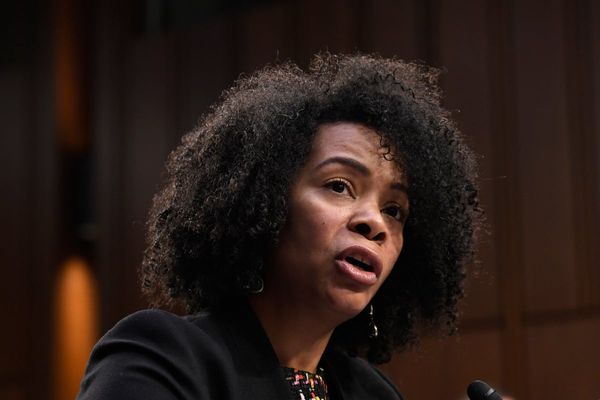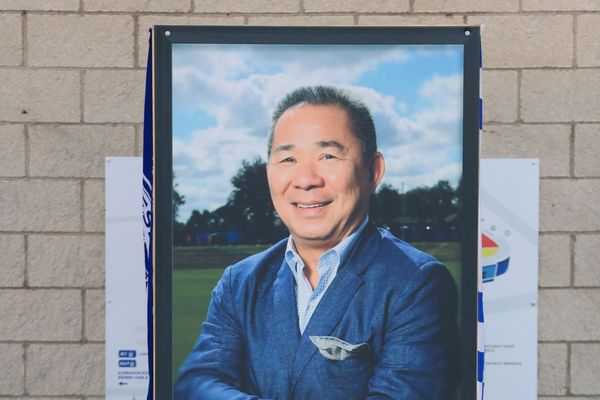
A week before the U.S. presidential election, the Trump administration sought sweeping changes to transform U.S. government broadcasting agencies into cheerleading networks for the president’s foreign-policy agenda. But congressional Democrats vowed to push back on the administration’s efforts to undermine the independence of the government broadcasters.
The head of the U.S. broadcasting agency has eliminated a recent firewall provision established to ensure the independence of news operations at Voice of America (VOA) and other government-sponsored news outlets and to shield their journalists from the interference of political leadership.
In a Monday night memo, Michael Pack, the CEO of the U.S. Agency for Global Media (USAGM), which oversees VOA’s news operations, issued the repeal of a June federal regulation that limited political interference in U.S. government broadcasting.
For VOA staffers, the memo represented the clearest sign yet of Pack’s effort to remake the government news agency into a state propaganda network for Trump.
“This is a terrible move by Mr. Pack. It will only serve to damage the coin of the realm for VOA and other broadcasters, which is their credibility,” said David Ensor, a former journalist who served as director of VOA from 2011 to 2015. “They get their credibility from having a firewall between the political powers in Washington and their journalism.”
The administration previously launched an investigation into VOA’s White House reporter, Steve Herman, to determine whether he had shown an alleged bias against Trump. The administration has also issued guidelines prohibiting reporters from reporting on Trump if they had ever retweeted or liked an article or cartoon critical of the president.
“A VOA journalist who expresses personal views on political topics in their personal social media creates the potential for a conflict of interest and should consider whether recusal or mitigation is required,” according to guidance issued on Oct. 2. “For example, a journalist who on Facebook ‘likes’ a comment or political cartoon that aggressively attacks or disparages the President must recuse themselves from covering the President.”
The repeal memo claimed that the firewall regulation was in conflict with the agency’s original mandate to promote American interests abroad. VOA and other U.S.-sponsored news agencies, it claimed, “do not function as a traditional news or media agency and were never intended to do so. … By design, their purpose and focus is foreign relations and the promotion of American objectives—not simply presenting news or engaging in journalistic expression. For example, the Networks are to articulate the American perspective while countering international views that undermine American values and freedom, or that might aid our enemies’ messaging.”
Other networks under USAGM such as Radio Free Europe/Radio Liberty (RFE/RL) and Radio Free Asia are intended to provide independent news to audiences in countries where media freedoms are curtailed, but could also be affected by the policy changes.
Jamie Fly, who served as President of RFE/RL until he was dismissed by Pack in June, said he feared the memo would put the services’s reporters based in Eurasia at increased risk of harassment by governments that already do not welcome their presence. “They’re often harassed, sometimes physically attacked, they have intelligence agencies following them, governments in many of these countries already accuse them of being spies,” he said.
“When the CEO who is funding these networks is putting out policy statements which talk about how he wants the journalists to focus more on foreign policy objectives, that creates a toxic brew which could easily be used against these journalists in the field,” said Fly.
The notion of a firewall between VOA’s journalists and Washington’s political masters was embedded in the agency’s charter, which was established by Congress and signed by President Gerald Ford in 1976. But the broadcaster’s leadership sought to codify those protections in a formal regulation in June, anticipating the arrival of a Trump appointee they feared would undercut its independence.
“I think those regulations were written in a bit of a panic about what by then looked like the immediate arrival for a Trump appointee,” Ensor said. “I can see why he might be offended by that and not want them to stand. But the fact that he has repealed them is a bad sign.”
Ensor questioned whether Pack had the legal right to remove the firewall, which was based on the agency’s own legal interpretation of the 1976 charter. “I’m sure it will be reversed by anybody that Biden appoints. But this is another example of someone who doesn’t understand journalism or why VOA has credibility,” he said.
During his confirmation hearing in 2019, Pack was asked by Sen. Bob Menendez, the ranking Democrat on the Senate Foreign Relations Committee, how he would protect the firewall. “I’m not sure about all the journalistic practices and techniques inside the agency now to do that, but I would look at those and try to strengthen them,” Pack said.
In a memo to staff, VOA’s acting director, Elez Biberaj, sought to assure staffers that the repeal only applied to the June regulation but that the long-standing firewall between the broadcaster’s journalists and the government remained in force.
“While some may see [the repeal] as a fundamental assault on the agency’s statutory mission to provide fair and balanced news coverage on behalf of the United States government, the repeal of the regulation only returns VOA and the agency to the pre-June 15 practices regarding the firewall,” Biberaj wrote. “As was the case before the regulation, it is my position that the repeal does not allow [the] government to tamper with or otherwise distort VOA content.”
“The importance of the firewall remains at the heart of VOA’s operations,” Biberaj added. “I am fully committed to protecting VOA’s journalistic integrity.”
Rep. Eliot Engel, the chairman of the House Foreign Affairs Committee, said Pack’s move would not stand and renewed his call for Pack’s resignation or firing.
“Mr. Pack has taken his rampage on America’s international broadcasting to another level,” Engel said in a statement issued Tuesday. “He’s trying to tear down the legally mandated firewall that protects [U.S. government] broadcasters from outside interference. But Congress created that firewall by law and although Mr. Pack can huff and puff, he can’t blow that wall down. The rule he rescinded yesterday clarified the legal protections. The firewall remains.”
USAGM oversees VOA, the Office of Cuba Broadcasting, Radio Free Europe/Radio Liberty, Radio Free Asia, and the Middle East Broadcasting Networks. Collectively, the U.S. government-backed media outlets reach an estimated 345 million people per week worldwide.
Pack’s brief tenure at USAGM is so rocky that it has even drawn the ire of senior Republican lawmakers, in a rare public breach with the Trump administration. The top Republican on the House Foreign Affairs Committee, Rep. Michael McCaul, joined with Democrats to issue a subpoena for Pack last month to attend a hearing on his management practices. Pack flouted the subpoena and never showed up to testify.
In his place, USAGM’s former acting CEO and Chief Financial Officer Grant Turner testified before the committee and accused Pack of mismanagement; undercutting programs aimed at circumventing Chinese, Russian, and Iranian firewalls; and firing officials who upheld journalistic standards while covering the Trump administration.
“Nothing in my 17 years comes even close to the gross mismanagement, the abuse of authority, the violations of law that have occurred since Michael Pack assumed the role of CEO,” he told the committee.







